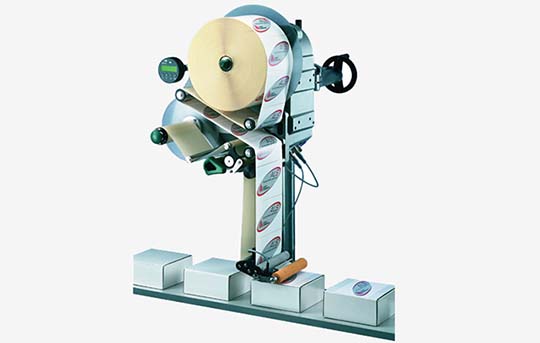What is enterprise labeling?
Enterprise labeling is the process of labeling goods as they move through the supply chain in order to meet the demands for efficiency, accuracy and complete visibility that today’s complex supply chain requires. The term refers to one coherent plan that allows companies to tackle managing each part of the labeling process including multiple printers, printing supplies, variable labeling needs, label stocks and labeling software that works with existing platforms, applications, and programs used to run the business.

A solid enterprise labeling solution is necessary to stay competitive. It will enable organizations to meet customer requirements quickly, fulfill compliance when necessary, empower users to create and update labels as needed, scale up to support high-volume label printing and more.
Barcode labels have the imperative job of conveying accurate information from multiple data sources throughout the global supply chain process, and meet various sets of labeling requirements along the way. An effective solution will utilize the latest technologies and supplies to create an enterprise labeling system that helps to streamline business processes and improve supply chain efficiency.
6 Pillars of an Enterprise Labeling Solution
"Labeling" might seem like a catch-all term that applies to all businesses equally, but there are unique labeling challenges that require businesses to implement an enterprise type solution. There are six core pillars that comprise a true "Enterprise" labeling solution. These could certainly apply to a business that isn’t "enterprise" size, but still has these specific business needs:
- The WHOLE Supply Chain Has Many Different Moving Parts – An Enterprise has the size, reach, and relationships – not to mention the need – to leverage a complete labeling solution to maximize efficiency up and down the supply chain, and not just in its facilities. An effective solution will utilize label automation capabilities where possible to remove manual processes that are no longer efficient. This also reduces the risk of manual errors.
- Global Regulatory Requirements – If a business is dealing with the increasing global nature of disclosure and labeling regulatory requirements, they’ll need a solution that considers the cross-border nature of the business and the regulations to which they are subject.
- Customer and Supplier Responsiveness is Imperative – If your process includes work with distributors, suppliers and customers along the way, you’ll need an enterprise level solution that allows your business partners to customize and configure to their own processes, language, or regional requirements. This will lead to higher accuracy, and greater control at each step and more.
- Enterprise Collaboration – Establishing centralized access across your supply chain can reduce mislabeling errors and unnecessary relabeling. This centralized access gives everyone real-time data and information needed to keep the workflow moving forward.
- Logistical Continuity – Allowing global partners to leverage label templates and shift label production (or content) when necessary ensures the continued flow of goods and reduces potential sources of disruption.
- Brand Awareness – A centralized set of standards that reinforce your brand at every touchpoint can help prevent counterfeiting and keeps your brand front and center throughout the process.
These are some basic principles that can be part of the definition of "Enterprise Labeling" for your business. You might see that only 3-4 of them matter to your business, or you might recognize the need to improve on all of them. Either way, as technologies continue to advance, it’s necessary to keep improving your business processes to keep the momentum moving forward and stay competitive.
Partnering with an enterprise label company that provides services specifically meant to streamline these processes can allow you to focus on what you do best.


